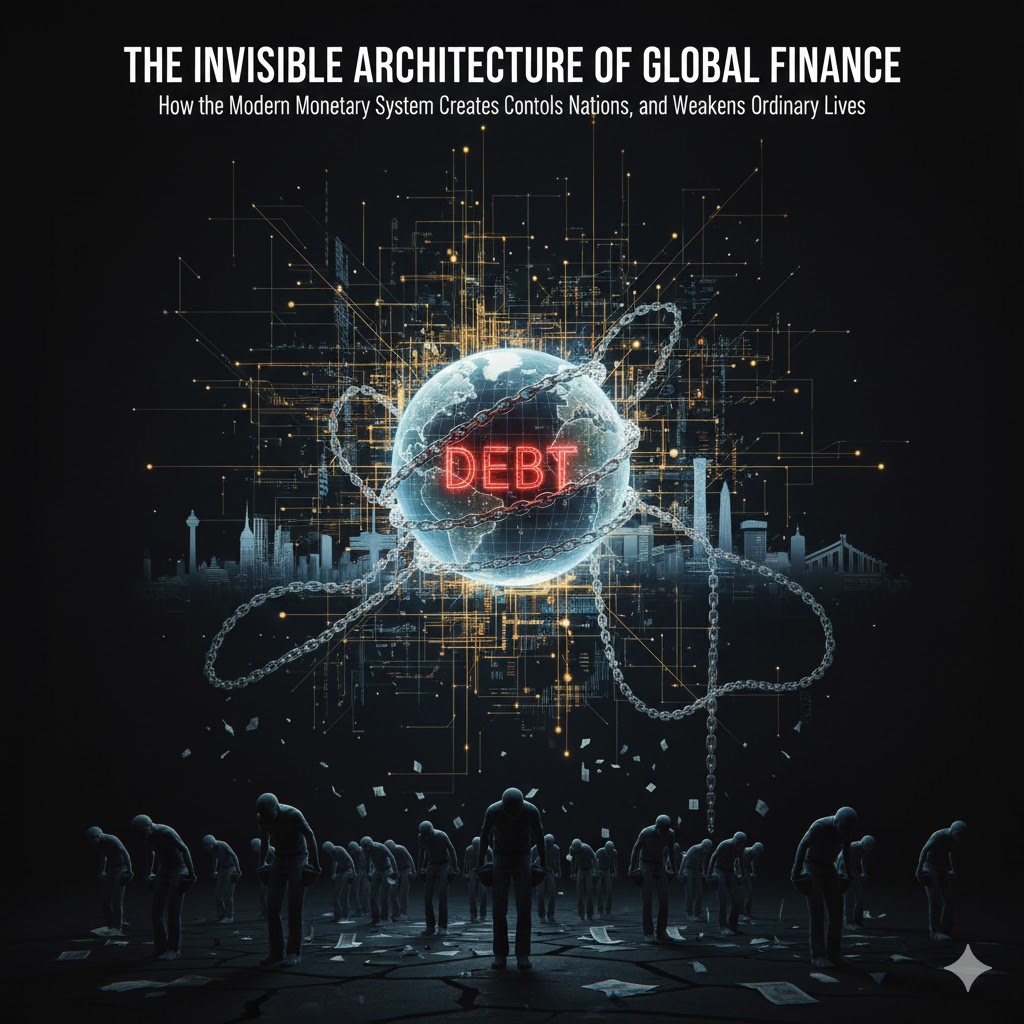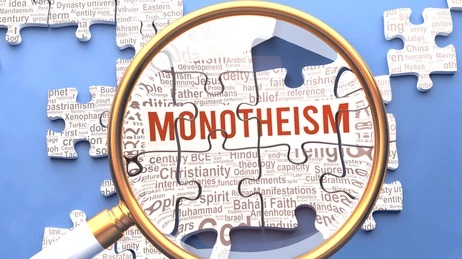The concept of monotheism, the belief in a single, all-powerful God, is central to many of the world’s major religions. This belief shapes the theological, philosophical, and ethical frameworks of these faiths. Below is a detailed exploration of monotheism in various world religions, along with references to their sacred texts.
1. Monotheism in Judaism
Core Belief:
Judaism is one of the earliest examples of strict monotheism. The central belief is in one, indivisible God who is the creator and sustainer of the universe.
Sacred Texts:
- Torah: The first five books of the Hebrew Bible, known as the Torah, are the foundational texts of Judaism. The Shema, found in Deuteronomy 6:4, is a declaration of monotheism: “Hear, O Israel: The Lord our God, the Lord is one.”
- Tanakh (Hebrew Bible): The Tanakh, which includes the Torah, Nevi’im (Prophets), and Ketuvim (Writings), consistently emphasizes the oneness of God. For instance, Isaiah 44:6 states, “I am the first and I am the last; apart from me, there is no God.”
2. Monotheism in Christianity
Core Belief:
Christianity also upholds monotheism but introduces the concept of the Trinity, where one God exists in three persons: the Father, the Son (Jesus Christ), and the Holy Spirit.
Sacred Texts:
- The Bible: The Christian Bible, comprising the Old and New Testaments, affirms monotheism. The Old Testament shares much of its content with the Jewish Tanakh, including the Shema. The New Testament reinforces this belief while also introducing the doctrine of the Trinity, as seen in Matthew 28:19: “Go therefore and make disciples of all nations, baptizing them in the name of the Father and of the Son and of the Holy Spirit.”
- Gospels and Epistles: The Gospels narrate the life of Jesus Christ, who emphasized the worship of one God. For example, in Mark 12:29-30, Jesus quotes the Shema, affirming the oneness of God.
3. Monotheism in Islam
Core Belief:
Islam is a strictly monotheistic religion, emphasizing the absolute oneness of God (Allah) without any division or association with other beings.
Sacred Texts:
- Quran: The Quran is the holy book of Islam and is considered the literal word of God as revealed to Prophet Muhammad. The central tenet of Islam is Tawhid, the oneness of God, which is emphasized throughout the Quran. Surah Al-Ikhlas (112:1-4) declares, “Say, He is Allah, [who is] One, Allah, the Eternal Refuge. He neither begets nor is born, Nor is there to Him any equivalent.”
- Hadith: The Hadith, collections of sayings and actions of the Prophet Muhammad, also reinforce the concept of monotheism, highlighting the importance of worshiping only Allah.
4. Monotheism in Zoroastrianism
Core Belief:
Zoroastrianism, one of the world’s oldest monotheistic religions, centers around the worship of Ahura Mazda, the supreme god and creator.
Sacred Texts:
- Avesta: The Avesta is the holy book of Zoroastrianism. It includes hymns, prayers, and liturgical texts, with the Gathas being the most important. In the Gathas, attributed to the prophet Zoroaster, Ahura Mazda is described as the supreme and singular god. Yasna 30.9 refers to Ahura Mazda as the creator of everything good.
5. Monotheism in Sikhism
Core Belief:
Sikhism is a monotheistic religion founded in the 15th century in the Indian subcontinent. Sikhs believe in one God, who is formless, eternal, and beyond human comprehension.
Sacred Texts:
- Guru Granth Sahib: The Guru Granth Sahib, the holy scripture of Sikhism, emphasizes the oneness of God. The Mul Mantar, the opening verse of the Guru Granth Sahib, declares: “There is One God, Eternal Truth is His Name; Maker of all things, fearing nothing and at enmity with nothing; timeless is His image; not begotten, being of His own Being: By the grace of the Guru, made known to men.”
- Japji Sahib: This prayer, composed by Guru Nanak, the founder of Sikhism, also reinforces monotheism, stressing that God is the creator of all and pervades everything.
6. Monotheism in Baha’i Faith
Core Belief:
The Baha’i Faith, emerging in the 19th century, teaches the oneness of God, the unity of all religions, and the oneness of humanity.
Sacred Texts:
- Kitáb-i-Aqdas: The Kitáb-i-Aqdas, the most important book of the Baha’i Faith, reaffirms the belief in one God. It emphasizes the unity of all religious truths and the continuous revelation of God’s will through different prophets.
- Writings of Bahá’u’lláh: Bahá’u’lláh, the founder of the Baha’i Faith, wrote extensively about the oneness of God. His writings describe God as unknowable and beyond human understanding, yet revealed through his messengers.
7. Monotheism in Hinduism
Core Belief:
Hinduism presents a complex form of monotheism, where one supreme reality, Brahman, manifests in various forms. While popularly perceived as polytheistic due to the multitude of gods and goddesses, many Hindu philosophical traditions uphold the belief in a single, ultimate reality.
Sacred Texts:
- Vedas: The Rigveda, one of the oldest texts in Hinduism, contains hymns that acknowledge the oneness of the divine, despite the appearance of many gods. Rigveda 1.164.46 states, “They call him Indra, Mitra, Varuna, Agni, and he is the heavenly bird Garutman. To what is One, sages give many a title; they call it Agni, Yama, Matarisvan.”
- Upanishads: The Upanishads, philosophical texts that explore the nature of reality, emphasize the concept of Brahman as the singular, formless, and infinite reality that underlies everything. The Chandogya Upanishad declares, “Ekam evadvitiyam” (Chandogya Upanishad 6.2.1), meaning “He is one, without a second.”
- Bhagavad Gita: While the Bhagavad Gita discusses various forms of worship and devotion, it also emphasizes the supreme reality of Krishna as the embodiment of the one God. In the Gita (Chapter 9, Verse 22), Krishna says, “To those who are constantly devoted and who worship Me with love, I give the understanding by which they can come to Me.”
8. Monotheism in Islam and African Traditional Religions
African Traditional Religions:
While many African traditional religions are often associated with animism or polytheism, several traditions acknowledge a single, supreme creator god who is often associated with the sky or a distant realm. This god is usually considered too powerful or remote to be directly worshiped, leading to the veneration of lesser spirits or ancestors.
Monotheism in Abrahamic Religions:
The monotheistic beliefs in Christianity, Islam, and Judaism are often contrasted with African traditional religions. However, it’s important to note that the belief in a supreme god in African religions may co-exist with the veneration of other spiritual beings, a concept sometimes referred to as henotheism.
9. Conclusion: The Universal Appeal of Monotheism
Monotheism, as seen in the world’s major religions, serves as a unifying concept that underscores the belief in a single, ultimate source of all creation. Whether expressed through the strict monotheism of Islam, the Trinitarian doctrine of Christianity, or the philosophical monism of Hinduism, the concept of one God remains central to humanity’s quest for understanding the divine. These religions, through their sacred texts and teachings, provide various pathways to connect with this singular divine reality, each contributing to the rich tapestry of human spirituality.










